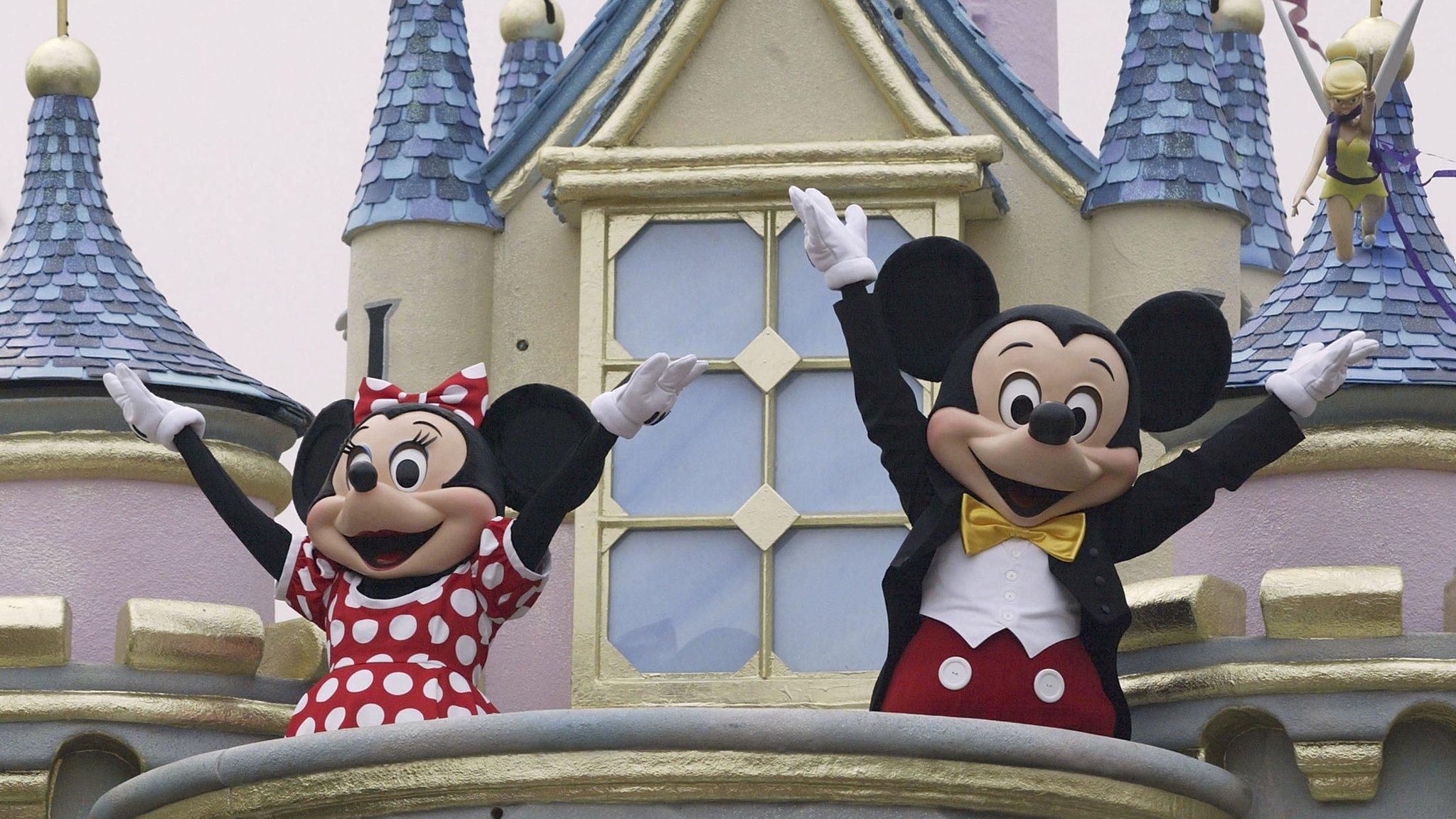Inside Disney's rush to deliver Baby Yoda toys
- Published
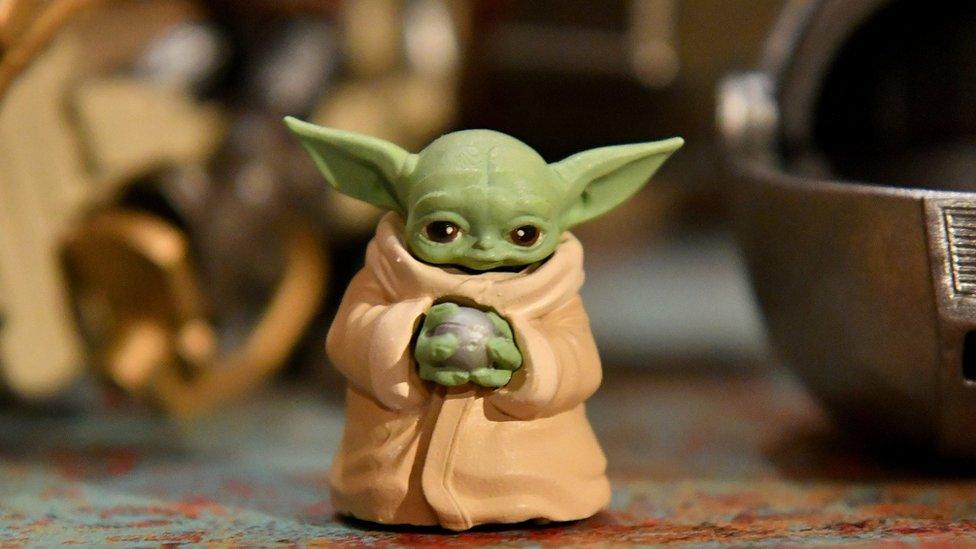
"Baby Yoda" became a social media phenomenon
The dearth of Baby Yoda toys disappointed many Star Wars fans last November - even those who had not yet watched The Mandalorian, the new show where the big-eyed baby alien is introduced.
But Disney, which owns the franchise, and its toy-making partners are making up for it now.
On Thursday, they teased a line of upcoming Baby Yoda products, which it is scrambling to get to buyers before the buzz about the little green creature dies down.
They've got Baby Yoda bikes, Baby Yoda water bottles, Baby Yoda bobble heads and Baby Yoda baseball caps. There is plush Baby Yoda, plastic Baby Yoda and build-your-own Baby Yoda bear. Also a slow-blinking, ear-wiggling Baby Yoda doll.
Some "print on demand" items, such as t-shirts, have been available since November. But shipping for many of the products remains months away and executives said the outbreak of the deadly coronavirus in China, which has halted manufacturing across much of the country, may lead to additional delays.
"Our initial ships are happening and how it affects things moving forward only time will tell," said JoAnn McLaughlin, senior vice president for brand merchandising and product design at Disney. "We're monitoring it on a regular basis but we don't know what the effect will be."
Baby Yoda, known officially as The Child, went viral after the release of The Mandalorian on the Disney+ streaming service, spawning thousands of social memes and commentary.
The success left Disney scrambling, since the company had agreed to hold off on merchandise until after the show aired at the request of the creators, who were afraid news of the character would leak.
"It created challenges," said Paul Southern, senior vice president for licensing and franchise at Lucasfilm. "Immediately the show aired, then people were looking for the merchandise... and we were literally starting from scratch at that point."
"It's just a testament to the power of social media," he added. "It's something that we've never seen before."
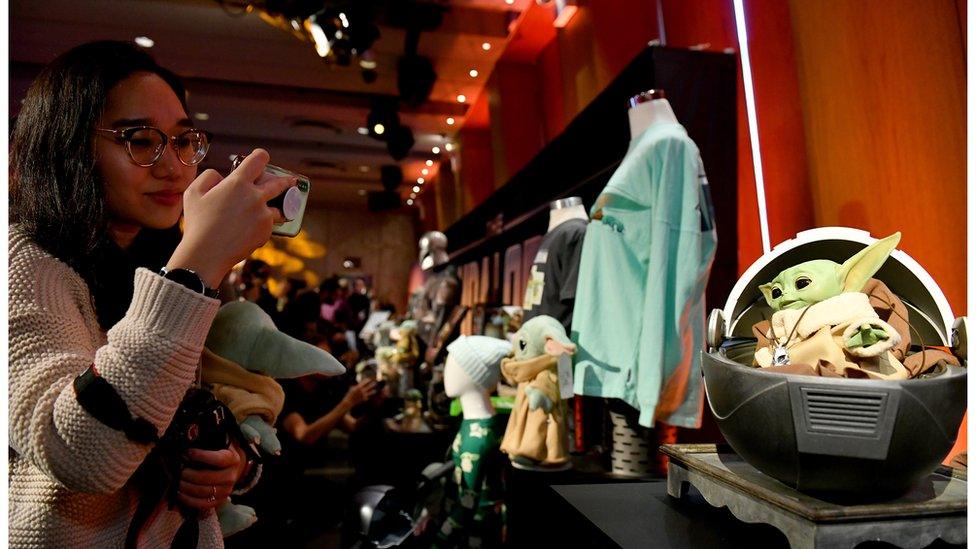
Toymaker Hasbro expects to start shipping products in May
It took Disney, which made more than $4.5bn from merchandise last year, a week to pull together the artwork it planned to disseminate on t-shirts, mugs and the like. In the rush, the firm pulled staff off other projects to develop concepts and cracked down on sellers filling the void with knock-offs.
The 2015 launch of Star Wars: The Force Awakens movie generated about $900m in sales for the toy industry in the next year, according to Juli Lennett, vice president at the NPD Group research firm.
While she's not expecting Baby Yoda to reach that scale, she said the character could contribute a 1% to 2% lift to the overall toy industry as it helps pull shoppers into stores.
The delay - which meant the firm missed the money-making Christmas season - may have even worked in its favour, she added. Orders for Baby Yoda bobble heads and stuffed animals are already breaking records.
"If you had asked me that question in November, I probably would have said I can't believe they missed Christmas but in hindsight... I think that the hype around it may have been a plus," she said.
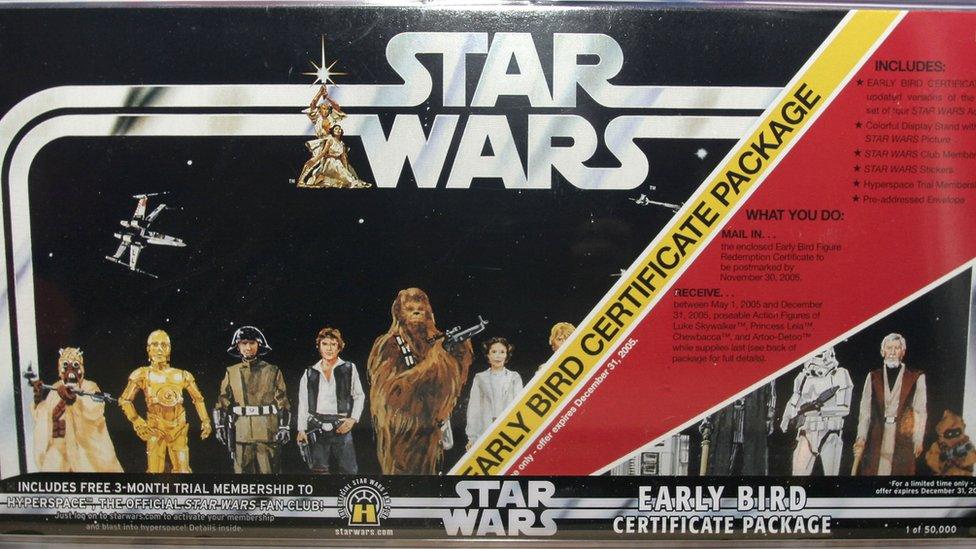
Product delays in 1977 didn't hurt the Star Wars franchise's staying power
Research company Jungle Scout estimates, external the delay could have cost the firm around $3m in lost Christmas-season sales.
But toy executives say they are confident they have not missed the moment, noting that Disney's streaming service has yet to launch in many countries and a second season of The Mandalorian Star Wars series is set for October.
"I don't in any way feel like we've missed an opportunity," said Michael Ballog, senior director of global brands at Hasbro, whose timeline to start shipping in May is unchanged by the coronavirus.
"I think we have an increased opportunity ahead of us," he added.
- Published5 December 2019
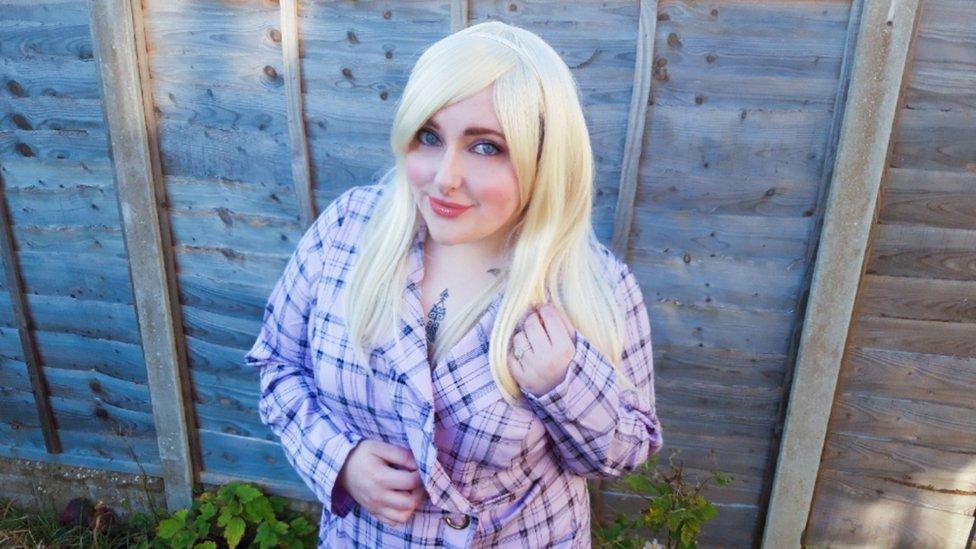
- Published4 February 2020
